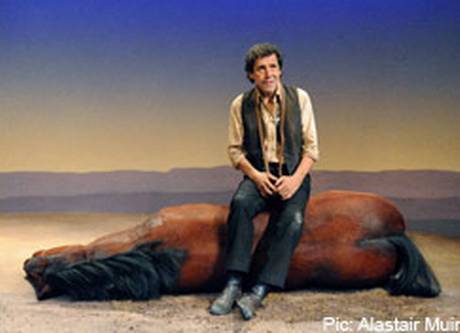Seven Deadly Sins of GMOZ
Truth is, we can talk the Seven Deadly Sins of GMOZ until we’re blue in the face. To what purpose that servers is anybodies guess. We Doowans pray it serves to our survival, because the facts speak for themselves. Rhetoric, lies, truth countering lies, More lies more truth. It a vicious circle, a trap. One we must not fall into.
Truth is, we are being lied too. So what, the point is once one knows their lying, they know the truth, we can move beyond that trap. Expecting them to changes for us because we know their lying is useless. Kicking a Dead Horse. Get off the horse and take action. The truth does set one free.
Truth is, we can only change ourselves. What we change in ourselves is what’s going to change our reflected reality. If we Believe/expect them to change. Then we are definitely setting ourselves up for disappointment. Disappointment we have brought upon ourselves. Change a Belief Change Reality. Change the belief that they will see the light and change their ways.
Truth is, they won’t change. Thus, the reflection. They can only change themselves. Once we believe that they won’t change we can stop expecting them to change. We can move past them to a new belief that we don’t need them to change. We have our personal power back and can now change ourselves.
Truth is, we don’t need them. We have the power to change our reality. How? Believe in yourself. We have the power to grow our own food. We live in a garden. Sow the Garden and harvest. Start a garden any garden. Personal, Family, Community, County, State, National.
Truth is, We the People have our power back! When one has power, that personal power can be used to take action. Truth is, our actions are what’s going to determine whether we have changed or not. To waste our time trying to change them or even going after them to make them pay. Is a waste of the personal power we all hold so dear. Use that power to create for yourself and loved ones. We don’t need them! The power of creation is in your hands now. Use it or lose it again.
Truth is, we Doowans have presented the GMOZ crisis in truth, as best we can. It appears that We the People are becoming more informed about GMOZ. That’s a wonderful thing. However, moving forward beyond their lies is in everyone’s best interest. Yes even theirs. Truth is, each and every one of us has the power to create. DoowansGardenSupply.com has shared its truth, and personal power with its readers. Now’s the time to use that shared power and create the garden that will provide for you, the abundance you need. Really, it’s not important to us that you purchase our Gardening products. However, that would help us in return.
Truth is, what’s important to us is that you take the power you now have and create something wonderful for yourself. That’s why we do the things we do. We all have to pitch in to change our reality.
Truth is, We the People do have our personal power back! Let’s use it, before we lose it. When one has power that personal power can be used to take action. Truth is, our actions are what’s going to determine whether we have changed our Reality or not. If one wishes to remain under the thumb. Your wish is the command in these new power filled times. To waste our time and power trying to change them or even going after them to make them pay. It’s a waste of the personal power, we all hold so dear. Don’t fall back into their trap. Use your personal power for yourself. That’s why it’s called personal power. Create!
Truth is, We know this GMOZ poisoning is happening. We don’t need them or their GMOZ’S. We Doowans wish to move past this and take control of are own lives. We ask that you join us, and do the same. If you can help us out and purchase your gardening supplies from us. That’s great, we thank you very much for supporting us in our mission. If you can’t, we understand. We still LOVE you and will support you in any way we can. We are here to serve! We will continue to share want we find with our friends and neighbors and of course our readers out there. However, We are tired of kicking a dead horse. GMOZ are now a dead horse. Truth is, you know the truth is about GMOZ. We don’t need them. Do what you will. The horse is dead, looks like it’s time to move on up the trail. You know, we would lead him to water but he never would drink. Damn, horse never was good for much.
Seven Deadly Sins of GMOZ could be our last post on this subject. Unless we find some really juicy stuff then we’ll share. There’s so much more out there besides GMOZ. Truth is, it’s Simple, Buy them or Stop buy them. The latter will affect a change. The effect will change them. Win/Win!
Seven ways GMO toxicity affects animals, plants and soil.
Our friends from (NaturalNews) has done it again. If the reader wishes to know more about the effects of GMOZ. The truth is, this site is the best we found. They are on a mission to bring the latest and greatest on GMOZ. We highly recommend their website. We thank them for their unbending intent to put and end to this crisis. Truth is, It’s now in the readers hands. MonSatan is the dead horse. I would Love to give MonSatan one more kick just for old times. So here’s their article from NaturalNews. (http://www.naturalnews.com)
Truth is, Damn horse, should have drunk at the last stream we crossed!
Wednesday, January 23, 2013 by: Jonathan Benson, staff writer
(NaturalNews) In the aftermath of the defeat of Proposition 37 in California, many more Americans are now aware of the existence of genetically modified organisms (GMOs) and their unlabeled presence throughout the food supply. However with this awareness has come a lot of confusion, as the processed food and biotechnology industries have spent a lot of money and effort spreading propaganda and lies about GMOs. So to help set the record straight, we have outlined seven specific ways in which GMOs damage animals, plants, soil, and ultimately humanity.
1) GMOs disrupt digestion. Purveyors of GMOs claim that the human body is unable to tell the difference between GMOs and natural food. But a 2004 study published in the journal Nature Biotechnology tells a different story, having found that transgenic plant DNA actually persists in the human gastrointestinal tract upon consumption. According to this important study, which is the closest thing to a human clinical trial that has ever been conducted with GMOs, genetic material from GMOs actually transfers into the DNA of living bacteria in the gut, where it reproduces indefinitely. (http://www.anh-usa.org)
2) GMOs cause cancer. The most recent study to identify a link between GMO consumption and the formation of cancer, the so-called Seralini Study provides solid evidence showing that GMOs are processed by mammals far differently than natural foods. According to this study’s findings, rats fed a lifetime of GMOs sprayed with the toxic Roundup (glyphosate) herbicide developed serious tumors that took over their entire bodies. An earlier study published in the International Journal of Biological Sciences arrived at similar results, with the addition of organ failure as a symptom of GMO consumption. (http://www.naturalnews.com)
3) GMOs increase herbicide use. Contrary to industry claims, GMOs have not reduced the need for chemical inputs, but rather greatly expanded it. According to a comprehensive, 16-year review of chemical use in conjunction with the advent of GMOs in 1996, researchers from Washington State University’s Center for Sustaining Agriculture and Natural Resources found that herbicide use has increased by an astounding 527 millions pounds since GMOs were first introduced. To make matters worse, Roundup, the chemical of choice for many GMOs, has been found to persist in soils, waterways, and other environmental nooks and crannies, and sometimes it even ends up contaminating water supplies. ( http://www.huffingtonpost.com)
4) GMOs damage native species. A major point of contention with GMOs is that they can very easily pass their traits onto non-GMO, organic, and native crops and other plants, effectively destroying their very integrity permanently. Hundreds of farmers have actually been sued by Monsanto and other GMO giants over the years after their crops were inadvertently contaminated by GMOs. GMOs are also responsible for killing off bees, bats, butterflies, and other pollinators, whose bodies are unable to handle the onslaught of altered DNA and chemicals that are characteristic of GMO technologies. (http://www.naturalnews.com/035511_insecticide_bees_collapse.html)
5) GMOs pollute the environment. Mainstream scientists and industry spokespersons often gloat about the supposed environmental benefits of GMOs. But the truth of the matter is that GMOs and the chemicals used to grow them are a major source of environmental pollution. A 2011 study published in the journal Proceedings of the National Academy of Science found that the Bacillus thuriengensis (Bt) bacteria engineered into Monsanto’s GM corn can now be found in hundreds of streams and waterways throughout the U.S. Midwest. Another study published in the journal Analytical and Bioanalytical Chemistry revealed that Roundup herbicide is also present in many waterways and groundwater sources throughout America as well. (http://naturalsociety.com)
6) GMOs deplete soil minerals, destroy beneficial bacteria. The presence of Roundup, Bt bacteria, and other GMO byproducts in our water and soil would only be half as bad if these toxins merely persisted as innocuous pollutants. But studies have shown that these chemicals actually degrade and deplete soils of vital minerals and beneficial bacteria, both of which protect crops from pests, viruses, and other threatening elements. Glyphosate, the active component in Roundup, also does not biodegrade, which means it is continually accumulating in the environment without restraint, perpetually altering soil composition and contaminating natural resources. (http://www.psrast.org/soilecolart.htm)
7) GMOs spawn crop-destroying ‘superweeds,’ ‘superbugs.’ The basic premise behind how GMOs work portends that artificially engineering crops with resistance to certain chemicals and exposures that would otherwise harm or kill them can improve yields and protect the environment. And this built-in resistance has allowed farmers to indiscriminately spray chemicals like Roundup on their crops without worrying about killing them. But this system is now failing, as the weeds and pests targeted by GMO technologies have mutated and developed resistance to crop chemicals and Bt toxin. As a result, pestilence and disease is on the rise due to GMOs, which spells eventual disaster for the food supply.
Sustainable farming
The concept of sustainability rests on a simple principle: everything we need for our survival and well-being depends on our natural environment. In order to continue to have water and the resources to protect human health and our environment, we must meet our present needs without compromising the needs of future generations.
Sustainable agriculture addresses many environmental and social concerns. The major challenge of environmentally sustainable farming is to protect biodiversity, water and soil quality, despite rapid population growth and the increasing need for food. In a socio-economic context, sustainability aims to eradicate extreme poverty and hunger and to maintain human health. This means that the development of sustainable agriculture also offers innovative and economically viable opportunities for growers, consumers, policymakers and many others throughout the food system.
Genetically modified plants have been grown commercially for over 15 years and their possible impacts on the environment and human health are often under debate. Current studies have also begun to address their possible contributions to the various dimensions of sustainable farming.
Making farming more efficient
Scientists forecast that the current demand for crop production will have doubled by the year 2050, meaning that more food needs to be grown on less land and with less water. Most strategies therefore aim to make crop production more efficient. This may be of particular importance in developing countries, where the current trend is to clear more land instead of intensifying crop yields. Land clearance is considered to be one of the major causes of biodiversity decline and greenhouse gas emissions.
Certain genetically modified crops may pave the way for more efficient agricultural practices that make better use of existing farmland. The cultivation of herbicide-resistant soybeans, Bt maize and Bt cotton, for instance, has led to yield improvements of 10 – 30% in some regions of the United States and Asia compared to conventional crop varieties. Farmers have also benefited from pesticide savings of between 30% and 70% for Bt maize and Bt cotton that have further reduced their crop management costs.
Impact of GM crops on soil quality and greenhouse gas emissions
Intense farming practices, such as tillage and land clearance, are responsible for a quarter of global greenhouse gas emissions and increase the risk of soil erosion. Several Bt- and herbicide-resistant crops can be grown with a minimum of tillage or using the no-till system. Without tillage, the soil is better protected against soil erosion, and the storage of organic matter helps to retain soil moisture. In some regions of the United States, no-till cultivation of GM soybeans is thought to have reduced erosion by 90%. No tillage also means that less machinery and fuel is required to cultivate the fields, which reduces harmful traffic on wet soil and cuts greenhouse gas emissions.
Impact of GM crops on water quality
Water is the principle resource for human agriculture and the major limiting factor when mismanaged. The most important issues relating to water quality are salinization and contamination of ground and surface waters by pesticides and fertilizers. Insect-resistant Bt crops that produce a natural toxin from Bacillus thuringiensis bacteria have significantly reduced the use of pesticides since their commercialization in the nineties. The no-till system used to manage pest-resistant GM crops has further reduced the risks of water surface run-off from the topsoil.
Water shortage and drought are currently the main factors behind decreasing crop yields, and more and more plant biologists are focusing on developing stress-resistant plant species. Novel genetically engineered crops with increased resistance to heat, drought or salt may save marginal farmlands that would otherwise be lost through desertification.
Thanks again (NaturalNews) guys. If you guys should see Monsatan along the path. I forgot to shoot that dead horse. Thanks, wouldn’t want a dead horse to suffer. Truth is, you can lead a horse to water but you can’t make them drink. That’s the truth! Damn Horse!

Flying on the Wings of Consciousness. With Creation under our Wings. NOW, that’s Freedom!
Knowledge is Power
Experience is Wisdom
Take your Power Back
Thunderbird
Disclaimer: This article is not intended to provide medical advice, diagnosis or treatment of any kind. We don’t imply or condone the breaking of any laws. For educational purposes Only. Or are we telling anybody to do anything regarding themselves. We are all big boys and girls and can make up our own minds, if you Clowns would just take the fluoride out of the water supplies.





Leave A Comment
You must be logged in to post a comment.